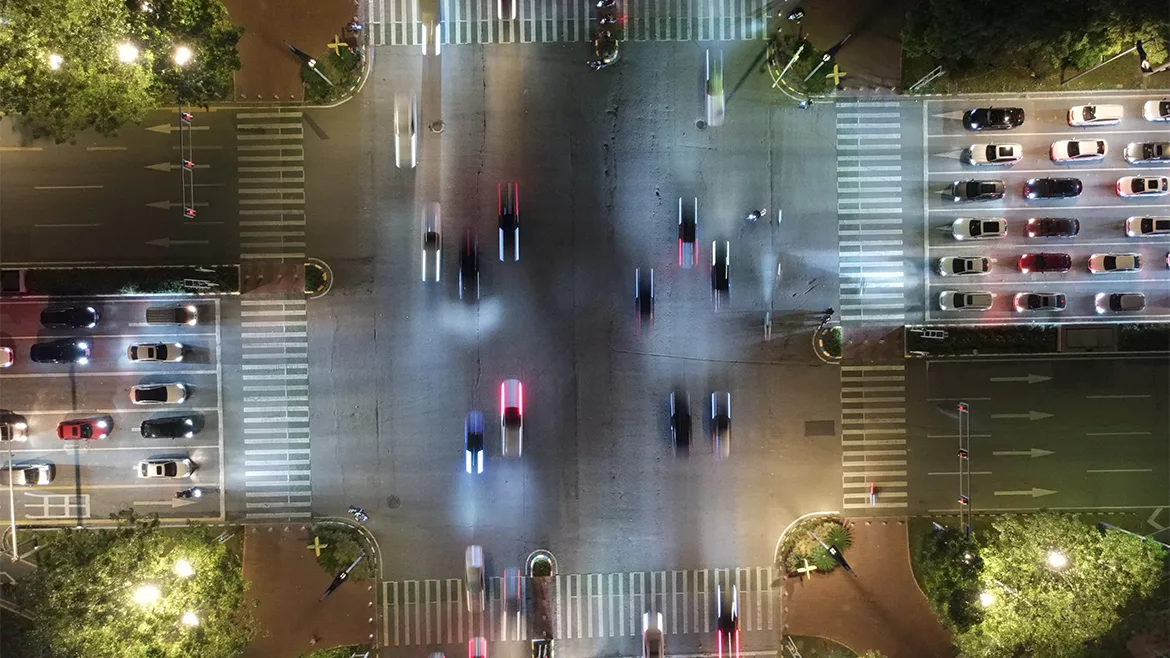Hot Topics From TCA Truckload 2025: How Carriers Are Navigating AI, Workforce Shifts, and Market Uncertainty
Some of the industry’s sharpest minds came together at the Truckload Carriers Association Truckload 2025 event to tackle big questions: How do we harness AI without losing the human touch? What does it take to attract a new generation of drivers and leaders? And how do carriers, large and small, chart a course through prolonged market volatility?
This year’s event delivered a mix of hard truths, big ideas, and practical takeaways. In this recap, we’ll dive into the key conversations and themes from the main stage and breakout panels. Whether you’re already implementing advanced technology or just trying to stay afloat in today’s market, keep reading for insights on the next steps to take.
Embracing Artificial Intelligence in Trucking

Artificial intelligence was a central theme at Truckload 2025. In a panel moderated by Commercial Carrier Journal’s Jason Cannon, industry leaders from Grand Island Express, D.M. Bowman, and Optimal Dynamics offered a candid look at implementing AI in real-world operations.
The overarching message? AI isn’t here to replace jobs — it’s here to elevate them.
Deen Albert of Grand Island Express and Mark Scanlan of D.M. Bowman shared how their teams use AI to optimize dispatch networks, improve driver communications, and even enhance safety through image recognition on in-cab cameras. Both emphasized early and frequent communication with their teams to ensure buy-in and eliminate fear.
Our own Zach Schuchart reminded attendees that many carriers are already using AI without even realizing it — and those who haven’t fully embraced it yet may be further along than they think. The key is identifying specific problems AI can solve and aligning internally before diving in.
The key takeaway: Start with an honest assessment of your company’s current situation. AI can’t fix what you don’t fully understand. And then find the right partner. You need a vendor who’ll walk beside you — not just sell you software.
Policies matter, too. Legal expert Jonathan Todd of Benesch Law urged companies to put guardrails in place, ensuring AI tools are used responsibly and consistently across teams.
Whether you’re solving for underutilized assets, driver communication gaps, or decision fatigue in dispatch, AI has the potential to streamline operations and create real competitive advantage — if it’s done right.
Strategies From Large vs. Small Carriers

While the size of your fleet may shape your strategy, Truckload 2025 made one thing clear — no carrier is immune to today’s market challenges.
In a panel featuring executives from Knight-Swift, Landstar, TFI International, and Kriska Transportation Group, large fleet leaders discussed how they’re managing prolonged economic uncertainty, rising costs, and shifting regulations.
Their strategies ranged from focusing on specialized freight like over-dimensional loads with higher barriers to entry to optimizing owner-operator networks and increasing truck velocity through smarter sales initiatives.
Smaller fleets (including Double Diamond Transport, Trailiner, K&J Trucking, and Brown Dog Carriers & Logistics) echoed that sentiment in a separate panel, sharing their own playbook for surviving tough conditions. Their tactics included:
- Investing in used equipment
- Outsourcing to control costs
- Using technology to automate load assignments and increase efficiency
With fewer resources, smaller fleets often rely on discipline. They know when to say “no” to the wrong business and “yes” to the right freight mix. What they may lack in scale, they make up for in agility.
Across the board, panelists agreed that technology has become a great equalizer, allowing small and large fleets alike to do more with fewer people and to compete in smarter, more strategic ways.
Attracting and Retaining the Next-Generation Workforce
With Gen Z growing to represent 30% of the workforce by 2030, the conversation around recruiting and retaining younger talent took center stage at Truckload 2025. A panel featuring leaders from D.M. Bowman, James H. Clark & Son, and Volvo Trucks Canada tackled a key question: How do we make trucking a career of choice for the next generation?
Spoiler: It’s not just about the paycheck.
While competitive wages still matter, today’s younger workforce is looking for more than money. They want culture, purpose, and respect. They want to be heard, supported, and offered a clear path forward — not just another job.
In response, carriers are beginning to shift their focus to:
- Prioritizing work-life balance and flexible scheduling.
- Helping newer employees learn from experienced team members.
- Using technology to remove repetitive tasks and elevate meaningful work.
- Hiring with intent, focusing on culture fit over short-term fixes.

Samantha Bodnar of D.M. Bowman shared that the average age of the company’s leadership team has dropped by more than a decade — not by design, but because a values-driven culture attracted younger leaders naturally. Samantha was recently recognized as an HDT Emerging Leader for how she’s successfully disrupting the company’s traditional operations by adopting AI-driven load planning and dispatching optimization software from Optimal Dynamics. As she stated, “Optimal Dynamics helps us to reduce our empty miles, get more revenue per truck, and pull from broker boards quicker than anyone else can."
The Value of In-Person Engagements and Recognizing Excellence

While technology is transforming operations, there’s still no substitute for a handshake, a conversation, or a shared laugh at a networking event. At Truckload 2025, the energy in the room was a powerful reminder of the value of gathering in person.
From chance hallway introductions to deep dives during breakout sessions, attendees left with new ideas and connections that can help shape their strategies and support their businesses for the years ahead. These face-to-face moments help spark partnerships, build trust, and keep the industry moving forward together.
Truckload 2025 also marked the launch of something special: the inaugural Elite Fleet certification program. This new recognition honors carriers that go above and beyond in creating a world-class workplace for drivers.
The Elite Fleet distinction is a testament to the companies that are setting the standard for safety, performance, and culture. By spotlighting the best places to drive, the TCA is helping raise the bar for the entire industry.
From honoring excellence to exchanging ideas, the event was a celebration of everything that makes this community strong.
Driving the Industry Forward, Together
If there was one clear message from Truckload 2025, it’s this: The trucking industry isn’t standing still, and neither can we.
From AI-driven innovation to workforce transformation, from strategies built for scale to the quiet resilience of small fleets, this year’s event showcased the adaptability, grit, and forward-thinking spirit that define the industry. But just as important as the ideas shared was the sense of community and the sight of leaders coming together, not as competitors, but as collaborators in a rapidly changing landscape.
Whether you’re refining your tech stack, rethinking your recruiting strategy, or simply trying to stay ahead of economic uncertainty, the conversations at Truckload 2025 offer a blueprint for what’s possible. The fleets that succeed this year and beyond will be the ones that stay curious, stay connected, and keep pushing forward.
The Optimal Dynamics team was honored to participate in Truckload 2025. Did we miss you at the event? Get in touch to schedule time to talk to one of our team members.







